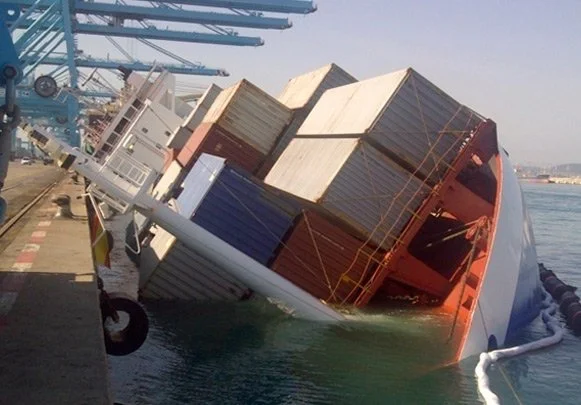Collapse of Baltimore's Key Bridge Disrupts Trade Operations: Impact Analysis
The recent collapse of Baltimore's Francis Scott Key Bridge, resulting from a collision with a container ship on March 26, has sent shockwaves through the trade industry, causing significant disruptions to the flow of commodities, particularly coal and cobalt.
According to S&P Global Commodity Insights, the closure of the Key Bridge, a vital artery for transportation of goods in and out of the Port of Baltimore, has halted vessel traffic, severely affecting trade operations at one of the United States' key maritime hubs.
The bridge collapse has effectively blocked access to major US coal export terminals, including CSX Curtis Bay and Consol Marine Terminal (CNX), leading to disruptions in coal shipments. Baltimore, as the top originating port for US thermal coal exports, faces a substantial setback, with approximately 17.1 million metric tons of thermal coal exported from the port in 2023 alone.
Furthermore, the closure is expected to impede US coal exports to key destinations such as India, China, Canada, and the Netherlands, with Baltimore handling a significant portion of these shipments. Primary shippers of coal from Baltimore, including Arch Resources, Consol, and XCoal, among others, are likely to face logistical challenges as alternative routes may not provide sufficient capacity to compensate for the disruption.
While some coal tonnage may be diverted to terminals in Hampton Roads, Virginia, industry experts anticipate short-term disruptions in Baltimore coal exports, albeit with limited pricing impacts due to well-stocked markets.
The closure also affects Baltimore's significance in the metals trade, particularly in cobalt imports. The port serves as the largest source of US cobalt imports, with over half of total shipments flowing into Baltimore in 2023. The halt in cobalt shipments has led to tight inventories and a pause in spot cobalt offerings in the US.
Additionally, Baltimore's ports were the third-largest destination for US imports of unwrought primary aluminum in 2023, further exacerbating the impact on metals trade. Shipments of tin, copper, zinc, and lead are also expected to face delays, affecting supply chains and market dynamics.
Bulk ferrous scrap exports from Baltimore terminals in 2023 witnessed a significant increase, with the collapse likely to impede further shipments. Moreover, exports of LDPE film bales may also be affected, albeit representing a small portion of total US scrap plastic ethylene derivative exports.
While the bridge collapse has had minimal impact on US refined products flows and prices, bunker supplies on the Atlantic Coast could tighten as vessels seek alternative refueling ports. Additionally, the closure may necessitate the shifting of container traffic to other area ports, adding complexities to shipping operations.
Across various commodities, price reactions have been observed. While coal prices remained relatively stable, cobalt prices saw an uptick following the disruption. Similarly, aluminum transaction premiums reached a five-month high, reflecting market uncertainties and supply chain disruptions.
The collapse of Baltimore's Key Bridge underscores the vulnerability of critical infrastructure and the ripple effects it can have on global trade operations. As authorities work towards restoring operations, stakeholders across industries remain vigilant, navigating through the challenges posed by this unforeseen event.








